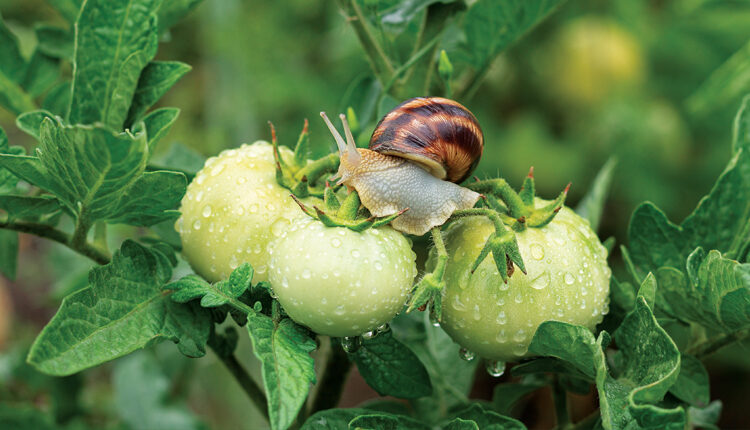Deter Slugs In The Garden
Slugs in the garden are not just unpleasant and messy, they are potential killers. As well as leaving slimy trails, eating a huge amount of plants and vegetables, and in some cases devouring garden-friendly ladybirds and earthworms too, did you know they also pose a health risk? Slugs can carry lungworm disease, which is equally dangerous to pets and humans alike – in the worst cases it can cause a form of meningitis which is sometimes fatal. Ingesting even a small amount of slug slime can also cause vomiting.
Slugs are most prevalent at night as they are prone to rapid dehydration during warm or sunny weather. If you have a big slug problem, the first line of defence is to don a pair of rubber gloves and go looking for them after dusk. Physically collect and relocate as many as possible.
After that, find a suitable way to deter them. Numerous chemical slug deterrents are available, but many are poisonous and unsuitable for use near edible produce, for families with small children, and pet owners. Several natural, non-toxic ways to deter slugs are safe for pets and children, such as creating a slug barrier around growing areas using copper (which gives slugs an electric shock), wood ash (which dehydrates them) diatomaceous earth or crushed eggshells (which damage their soft flesh) and beer traps that attract them.
You can also apply the following simple deterrents to plants, once a week or after any significant rainfall:
Citrus: Grate the peel of a mix of 4 citrus fruits (lemons, oranges, limes or grapefruit) and add to 3 cups of boiling, salted water. Cover and leave overnight. Strain and use to spray onto any affected plants or the slugs themselves.
Cayenne Pepper: Crush 7-10 garlic cloves and mix with 1 tablespoon of Cayenne Pepper. Add 3 cups of hot (not boiling) water, cover and leave to stand for 2-3 days. Strain and use in spray form. Exercise caution where very young or delicate plants are concerned as the pepper content may ‘burn’ the leaves.

Comments are closed.